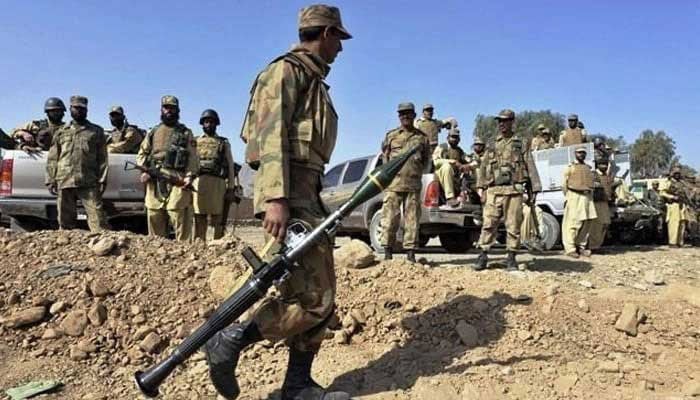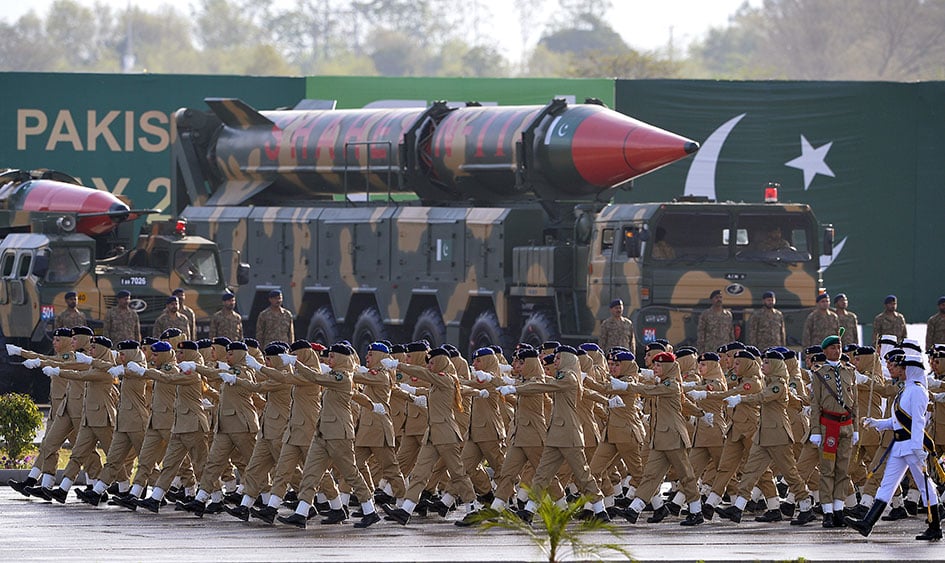PTBP Web Desk
In a significant achievement for Pakistan’s ongoing fight against militancy, security forces conducted an intelligence-based operation (IBO) in Khuzdar District of Balochistan, successfully eliminating five terrorists linked to Indian proxy group Fitna al Khwarij.
According to the Inter-Services Public Relations (ISPR), the military’s media wing, the operation was launched after actionable intelligence was received about the presence of militants in the area. The forces effectively engaged the terrorists’ hideout, neutralizing them in a swift action that underscores the determination of Pakistan’s security agencies to root out terrorism.
The ISPR confirmed that a cache of weapons, ammunition, and explosives was recovered from the slain militants. These materials, officials noted, were intended to be used in future terrorist attacks targeting civilians, security personnel, and critical infrastructure in the province.
The recovered explosives highlight the continuous threat posed by terrorist outfits in Balochistan, which has long faced instability fueled by Indian-sponsored terrorism and hostile proxies.
Following the successful strike, a sanitization operation is being carried out in the region to ensure that no other terrorists remain in the vicinity. Security forces emphasized that such follow-up actions are critical for restoring stability and preventing regrouping of militant cells.
The ISPR reaffirmed Pakistan’s resolve, stating:
“The security forces of Pakistan remain committed to wiping out the menace of terrorism, particularly Indian-sponsored networks operating under different disguises.”
The Khuzdar operation comes just days after another major success. On September 12, security forces conducted an IBO in Mastung District, where four terrorists were killed. According to ISPR reports, these militants had been involved in multiple attacks on both civilians and security forces in the area.
This back-to-back success highlights the increased effectiveness of Pakistan’s intelligence-driven strategy to dismantle terrorist networks.
Last month, Director General of ISPR, Lt Gen Ahmed Sharif Chaudhry, urged the people of Balochistan to play their part in the fight against terrorism. Speaking about the importance of collaboration between the state and citizens, he said that exposing terrorists and their facilitators is crucial to ensuring peace.
He cautioned that individuals providing shelter to militants or storing explosives in their homes would be dealt with strictly under the law.
“Any citizen who shelters terrorists or facilitates their activities will have to face the consequences,” he warned.
The DG ISPR also highlighted the need for the youth of Balochistan to resist propaganda and avoid becoming pawns in the hands of hostile powers seeking to destabilize Pakistan.
The military has repeatedly underscored the involvement of Indian intelligence agencies in supporting terrorism inside Pakistan, particularly in Balochistan. Groups like Fitna al Khwarij are seen as part of a broader network aimed at spreading instability, sabotaging development projects, and creating unrest among local communities.
Security analysts believe that the recent surge in IBOs across the province reflects a targeted approach to disrupt these networks before they can regroup or plan major attacks.
Balochistan remains the frontline of Pakistan’s counter-terrorism strategy due to its geographic importance, resource wealth, and vulnerability to external influence. Militants have long sought to exploit grievances in the province, but increasing collaboration between the government, military, and people of Balochistan is gradually closing space for such groups.
Recent military operations, combined with socio-economic development initiatives, are aimed at creating a more stable environment. However, the persistence of external support for terrorist groups continues to pose a challenge.
The Khuzdar operation adds to a growing list of successful missions that have significantly weakened terrorist networks in the province. Yet, officials stress that sustained vigilance is necessary.
Counter-terrorism experts argue that military operations must go hand in hand with community engagement, intelligence-sharing, and development projects to address the root causes of militancy.
Pakistan’s leadership has also emphasized that peace in Balochistan is crucial not only for national security but also for regional connectivity projects such as the China-Pakistan Economic Corridor (CPEC), which faces threats from hostile forces seeking to derail it.




